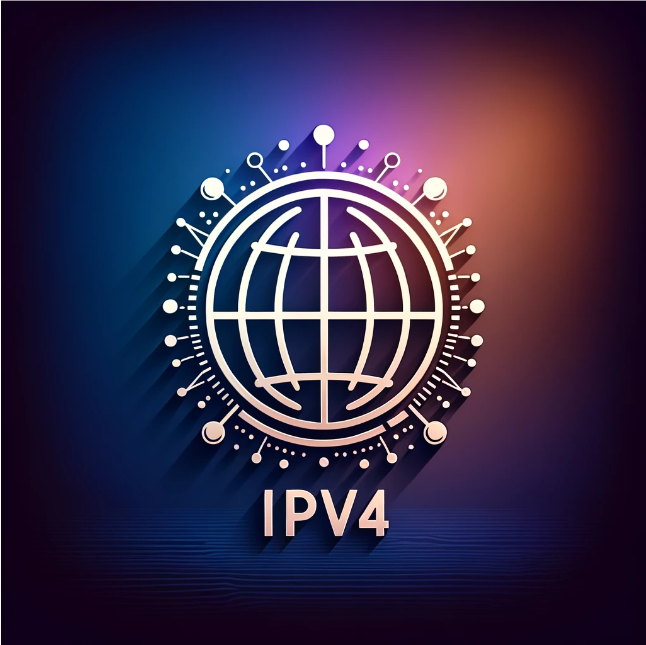In 2024, the digital landscape is continuing to evolve at an unprecedented pace, with the demand for Internet Protocol (IP) addresses reaching new heights. At the heart of this digital expansion is the ongoing challenge of IPv4 address exhaustion, a pivotal issue that affects businesses, Internet Service Providers (ISPs), and users worldwide.

As we navigate through 2024, the reality is stark: the pool of new IPv4 addresses has been utterly exhausted. This scarcity has propelled the value of existing IPv4 addresses, making them highly sought after. The depletion of IPv4 addresses isn’t a sudden event but the culmination of a concern that has been looming for over a decade. Initially, the top-level exhaustion of IPv4 addresses was declared on January 31, 2011, with all Regional Internet Registries (RIRs) subsequently exhausting their pools, barring those reserved for IPv6 transition.
The 2023 IPv4 address allocation data revealed that 54.4% of IP addresses allocated were for “Fixed Line” usage, followed by “Data Center” usage at 18.6%. Geographically, North America led the allocation, followed by Asia, Europe, South America, Africa, and Oceania. This distribution underscores the uneven spread of IP resources globally.
With IPv4 addresses becoming a scarce resource, the spotlight has turned towards alternatives. IPv6, with its vastly larger address space and enhanced features, stands out as the successor designed to address the limitations of IPv4. However, its adoption has been gradual, attributed to transition costs and compatibility challenges with legacy IPv4 infrastructure.
Network Address Translation (NAT) and IPv6 transition technologies offer interim solutions to the IPv4 shortage. Meanwhile, a robust marketplace has emerged, where entities with surplus IPv4 addresses lease or sell them to those in need. This marketplace is expected to thrive in 2024, keeping IPv4 address prices robust.
Activists have lobbied for the release of over 250 million unused IPv4 addresses, specifically the “240/4” block, to mitigate the scarcity. If released, these addresses could significantly impact the market by easing the shortage and potentially reducing prices. However, this proposal faces opposition due to concerns over delaying the transition to IPv6 and the ecological implications of upgrading network devices. The “240/4” block’s release could also reshape the IPv4 market dynamics, influencing the strategies of financially-stressed educational institutions holding unused addresses.
IPv6 plays a crucial role in the next generation of network technologies, including 5G. Its vast address space is essential for supporting the multitude of devices connecting to 5G networks, paving the way for advanced services leveraging the network’s enhanced capabilities. IPv6 not only offers improved security and routing efficiency but also facilitates the growth of IoT devices and mobile networks. Most 5G networks are adopting dual-stack support, ensuring compatibility with both IPv4 and IPv6, thus bridging the transition gap.
| Feature | IPv4 | IPv6 |
| Address Space | 32-bit (Over 4 billion addresses) | 128-bit (Virtually unlimited addresses) |
| Address Availability | Exhausted, high demand | Abundant, supports future growth |
| Security | Basic, enhanced with additional protocols | Built-in IPsec support for improved security |
| Configuration | Manual or DHCP | Auto-configuration capabilities |
| Adoption | Widespread, transitioning to IPv6 | Growing, especially with 5G networks |
| Market Dynamics | High prices, leasing marketplace | Encourages transition, long-term solution |
As we look towards the future, the transition to IPv6 emerges as an inevitable step to accommodate the expanding digital universe. The depletion of IPv4 addresses has catalyzed innovation and adaptation, from the emergence of a marketplace for IP address leasing to the exploration of technologies that facilitate the IPv6 transition. The potential release of unused IPv4 addresses offers a temporary reprieve, but the comprehensive benefits of IPv6, especially in the context of 5G networks, underscore the importance of embracing this next-generation protocol. As 2024 unfolds, the journey from IPv4 to IPv6 continues to be a pivotal narrative in the evolution of the Internet, highlighting the resilience and adaptability of our global digital infrastructure.

Alexander Timokhin
COO